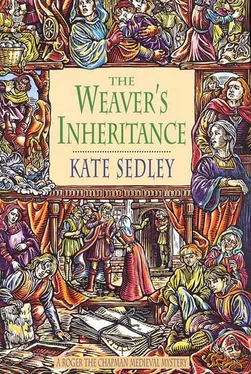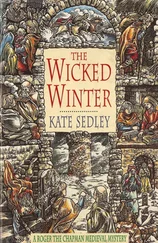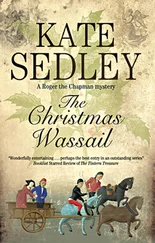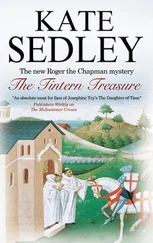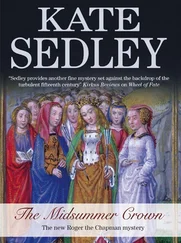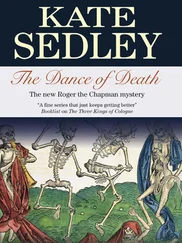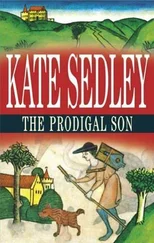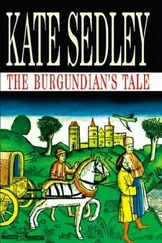Kate Sedley - The Weaver's inheritance
Здесь есть возможность читать онлайн «Kate Sedley - The Weaver's inheritance» весь текст электронной книги совершенно бесплатно (целиком полную версию без сокращений). В некоторых случаях можно слушать аудио, скачать через торрент в формате fb2 и присутствует краткое содержание. Жанр: Исторический детектив, на английском языке. Описание произведения, (предисловие) а так же отзывы посетителей доступны на портале библиотеки ЛибКат.
- Название:The Weaver's inheritance
- Автор:
- Жанр:
- Год:неизвестен
- ISBN:нет данных
- Рейтинг книги:4 / 5. Голосов: 1
-
Избранное:Добавить в избранное
- Отзывы:
-
Ваша оценка:
- 80
- 1
- 2
- 3
- 4
- 5
The Weaver's inheritance: краткое содержание, описание и аннотация
Предлагаем к чтению аннотацию, описание, краткое содержание или предисловие (зависит от того, что написал сам автор книги «The Weaver's inheritance»). Если вы не нашли необходимую информацию о книге — напишите в комментариях, мы постараемся отыскать её.
The Weaver's inheritance — читать онлайн бесплатно полную книгу (весь текст) целиком
Ниже представлен текст книги, разбитый по страницам. Система сохранения места последней прочитанной страницы, позволяет с удобством читать онлайн бесплатно книгу «The Weaver's inheritance», без необходимости каждый раз заново искать на чём Вы остановились. Поставьте закладку, и сможете в любой момент перейти на страницу, на которой закончили чтение.
Интервал:
Закладка:
‘Read it!’ he screamed at the poor man, who was white-faced and shaking. ‘Read it! Loudly, you stupid fool, so that everyone can hear you!’
What Doctor Goddard was being forced to declaim was Thomas Burdet’s protestation of innocence, which, according to the butcher, the condemned man himself had proclaimed just before he was hanged. When the quavering voice eventually died away, the Duke cleared his throat and yelled, ‘You all heard that! My man was not guilty! But that didn’t protect him from the vengeance and spite of the Woodvilles. Let me inform you, however, that they are the ones who are exponents of the Black Arts, not Thomas Burdet! They are the ones who have put a spell upon my brother in order to turn him against me! They are the ones whose agents poisoned my wife and newborn child! They are the ones who, if they have their way, will consume me as a candle flame is consumed by the wind!’ He paused for a moment, blinking, as though he had surprised himself by this flight of poetic imagery. Then he continued, ‘But I shall not let them. I shall be requited. That creature who calls herself Queen of England shall be proved an impostor when the time is ripe! And that will be sooner than she thinks!’ After which diatribe, he remounted his horse, wheeled it about and galloped off back to London, his retinue streaming in his wake.
This histrionic performance left his audience in two minds; some seemed to be genuinely worried at the prospect of renewed civil strife, while others merely sniggered.
‘He’s a windbag, that one,’ laughed the butcher. ‘He’ll soon come to heel when the King whistles him up.’
‘But suppose the King doesn’t whistle him up this time,’ I suggested. ‘Suppose that, at long last, Edward’s had enough.’
My companion considered this idea for a moment or two before confidently dismissing it. ‘No, he’ll forgive his brothers anything. Duchess Cicely’s children have always been a closeknit brood.’
‘So have the Woodvilles,’ I retorted grimly.
But we parted friends, agreeing to differ, and when I had eaten my dinner, bought from a pieman’s stall near the London Gate, I set out along the Strand, past the Chère Reine Cross, to the capital, where my first business would be to look up my old friend, Philip Lamprey, in his second-hand clothes shop, west of the Tun-upon-Cornhill.
* * *
The evening meal — a simple stew made special by some secret ingredient of Jeanne Lamprey’s own — was finished, the dirty plates pushed aside and our cups brimming with ale. Sitting opposite me at table was my host, his small, pock-marked face, illuminated by the single rushlight, intent and interested. When I had first met him, six years earlier, he had been thin to the point of emaciation, a beggar on the London streets, deserted by his wife who had run off with another man while Philip was soldiering abroad. In those days, his friends, if they could be dignified by such a name, had been found among the dregs of humanity in East Cheap and Southwark. But between then and our second encounter, four years later, he had prospered, saving enough money from his begging to rent a stall in Cornhill, where he sold second-hand clothes, and was now living very happily with his second wife in the daub-and-wattle hut at its rear.
Jeanne Lamprey, a little, round, bustling body, with bright brown eyes and a mop of unruly black curls, was young enough to be Philip’s daughter, being at this time, as far as she knew, some twenty years of age, compared with his forty-three. But in everything except years, she was far older than he. Her obvious love of him was not uncritical; she was not blind to his faults. She knew he was fond of strong liquor and therefore kept a wary eye on the amount he consumed, scolding him gently when he drank too much. Her business sense, too, was greater than his, although she was too partial and too clever to make him aware of it. Meeting her again, I was reminded of someone else, not in looks but in ways, and it was a long time before I realized that it was Adela.
‘So,’ breathed Philip, sighing with contentment at a well-filled belly, ‘here’s a puzzle. I can tell from your manner what you think, Roger, without even having to ask. You think this man who claims to be Clement Weaver is definitely an impostor. But he could have escaped in the way he says he did, you know.’ My host spoke with all the authority of one who had played a part in the original mystery, and made a contribution, however small, to its unravelling. ‘I knew a man once who struck his head a severe blow, and knew nothing of who he was, or where he came from, for months after he recovered consciousness.’
I shook my head. ‘You haven’t met this Irwin Peto. There’s something about him I just don’t trust.’
‘Something you don’t want to trust,’ Philip surmised shrewdly, ‘because, foolishly, you feel it to be somehow your fault that the Alderman has suffered his son’s absence all these years. You blame yourself for not having thought of the possibility of escape and your failure to search further.’
‘No,’ I insisted stubbornly. ‘The real Clement was fond of his sister, everyone who knew him says so. He wouldn’t have allowed his father to rob Alison of her share of their inheritance, however badly she behaved. He wouldn’t have been so unfair.’ I wiped my forehead with my hand. The hut was small and the May nights were growing warmer.
Philip gulped more ale. ‘Yet this friend of yours,’ he continued in his rasping voice, ‘this Widow Juett, is of the opinion that he is Clement Weaver. According to her account he recognized her without any prompting, although if he was an impostor, he couldn’t have known her. What do you make of that?’
‘I think Adela was pointed out, and her history made known to him at some time or another without her being aware of the fact. That seems to me the most likely answer.’
Philip grinned. ‘All right,’ he said. ‘We won’t waste time arguing. So what do you want of me?’
I glanced guiltily at Jeanne Lamprey as I answered, ‘To help me find this Morwenna Peto who lives in the Southwark stews. I want to hear what she has to say; to see if her story tallies with Irwin’s.’
Philip, too, looked towards his wife, as though asking for her approval, but Jeanne kept her eyes lowered, apparently absorbed in the task of picking at one of her nails. Denied her authority, my host said cautiously, ‘I’m not sure … It’s a long time since I was in those parts. I doubt I’d be remembered.’
‘Bertha Mendip would remember you,’ I insisted. ‘And as far as Morwenna Peto’s concerned, Bertha’s a West-countrywoman herself, and would surely have heard of any other such in the neighbourhood.’
‘That’s possible,’ Philip admitted, trying not to sound too enthusiastic. He knew from past experience that my appearance in his life invariably meant trouble, and that his wife also knew it.
Jeanne stopped picking her nail and looked up, fixing her big brown eyes sternly upon her husband. ‘You must do what Roger asks, Philip,’ she said, surprising both of us. ‘He is a friend, and he needs our help. As long as you carry your knife with you and Roger takes his cudgel, you should come to no harm. Wear your oldest clothes. Better still, you can pick the worst items from the stall.’
Philip was unable to restrain the face-splitting grin which cut his sharp little features almost in two. I guessed that, just occasionally, he pined for the freedom of his old way of life and the companionship of his former comrades. Not for long and not very often, respectability had become too deeply ingrained in him by now to be lightly abandoned, but every now and then he needed some excitement in an existence which had become a little too humdrum.
Читать дальшеИнтервал:
Закладка:
Похожие книги на «The Weaver's inheritance»
Представляем Вашему вниманию похожие книги на «The Weaver's inheritance» списком для выбора. Мы отобрали схожую по названию и смыслу литературу в надежде предоставить читателям больше вариантов отыскать новые, интересные, ещё непрочитанные произведения.
Обсуждение, отзывы о книге «The Weaver's inheritance» и просто собственные мнения читателей. Оставьте ваши комментарии, напишите, что Вы думаете о произведении, его смысле или главных героях. Укажите что конкретно понравилось, а что нет, и почему Вы так считаете.
